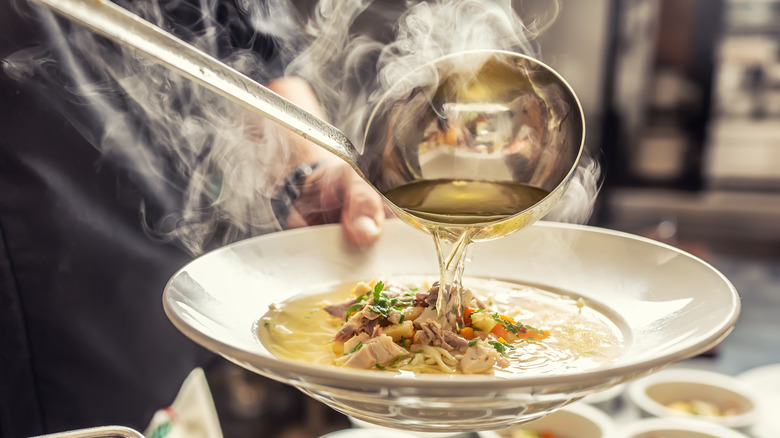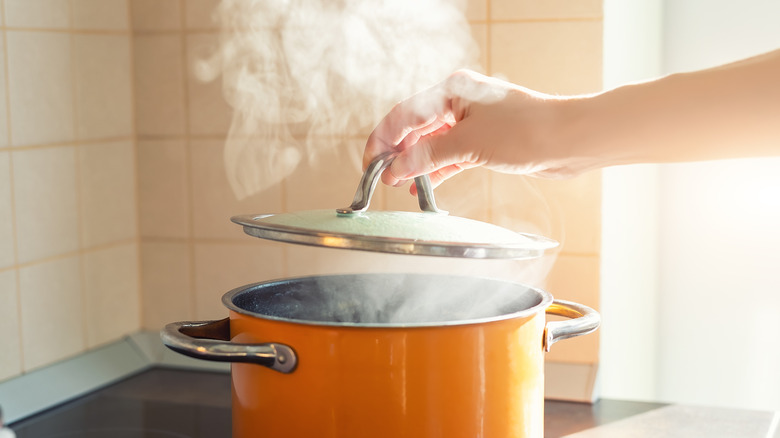Science Says This Is The Ideal Temperature For Soup
Soup is way more than a bland cup of broth on sick days — soup can be flavorful, healthy, and jam-packed full of flavor and texture. It's versatile, too, and not just for days with a freezing windchill: Just think of how wonderful a warm bowl of chili can be in the winter, or a cold cup of gazpacho in the summer.
Speaking of hot and cold, according to food scientists, the perfect serving temperature for soup actually does exist. Just like many other food debates, though, the answer depends on several factors, including personal preference.
Temperature not only affects how manageable a soup is to eat, but it affects the entire flavor profile. The point here, according to Mental Floss, is that heat, or lack thereof, brings out specific tastes. As a soup cools, the umami flavor that our tongues pick up lessens, and the saltier it tastes, according to Oxford Academic and Appetite. Certain ingredients, like tomatoes, are thought to lose flavor when chilled, says The New York Times, and perceived sourness increases with temperature whereas bitterness intensifies as temperature drops (via Food Navigator). Things get even more complex if you have sensitive taste buds, but the bottom line? Temperature affects how a bowl of soup tastes.
What is the ideal temperature, though?
So, how hot should soup actually be?
The honest answer is that you can eat soup however you like it, whether that's lukewarm or piping hot — you do you! Science, though, has a few pointers when it comes to temperature.
An estimate for the best serving temperature for soup, from a study published in the Journal of Food Science, sits somewhere between 136 and 162 degrees Fahrenheit. The grounds for this estimation get a little technical, but it mostly has to do with the tongue's pain threshold, which tends to sit at around 153 degrees for most individuals (MDPI Foods).
Now, as for the benefit to serving soup as hot as possible — that is, without damaging our sensitive taste buds? The intensity of aromas, or the smell and flavor enhancers of food, increase. Eating is a sensory experience, where our senses of taste and smell, primarily, work together to help us perceive flavor. Stronger aromas, which are amplified through heat, mean stronger flavor profiles as we chew (per Fine Dining Lovers).
Keep in mind, we do not recommend serving soup much higher than the threshold temp of 153 degrees Fahrenheit. Even if you can stand the heat, exposure to anything above 160 degrees can result in a burn (via National Library of Medicine). In order to kill any harmful bacteria, soup should be cooked at a base temp of at least 165 degrees, but some can reach up to (or over) boiling temperature, which is 212 degrees (via Food Safety Training & Certification). That said, be careful not to burn anybody's tongue.

